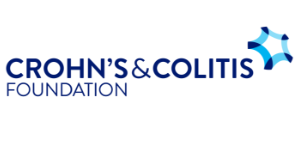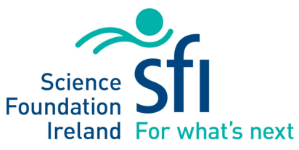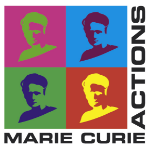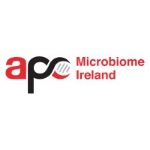Microbiome & Mucosal Immunity Laboratory
Biographical Information
Dr Sinéad Corr qualified with a BSc Microbiology in 2002 and in 2007 with a PhD in Molecular Microbiology from University College Cork (UCC). This was followed by postdoctorate work as part of a collaboration between GlaxoSmithKline and the Alimentary Pharmabiotic Centre UCC (now APC Microbiome Ireland) (2006-2008) and subsequently with Prof. Luke O’Neill’s Inflammation Research Group, at the School of Biochemistry and Immunology, Trinity College Dublin (TCD) (2008-2015). In 2015, Sinéad obtained an academic position in the Dept. of Microbiology, TCD, where she established the Microbiome & Mucosal Immunity research lab.
Overview of Research Interests
My laboratory focusses primarily on the host-microbe interface within the gastrointestinal (GI) tract, in particular modulation of intestinal immunity by the gut microbiome. We use molecular based approaches combined with animal models and clinical samples to understand the molecular mechanisms which govern the interplay between the gut microbiome and the host organism, specifically with the intestinal epithelial barrier and innate immunity. The subsequent maintenance of health or development of infectious or inflammatory disease as a result of this interplay is of particular interest. Gastroenteritis, including bacterial infectious diseases, are a major cause of morbidity and mortality worldwide, while inflammatory bowel diseases (IBDs; namely Crohn's disease and Ulcerative Colitis) affect over 2 million people in Europe. Our research has a key focus on IBD and we target Microbiome, Metabolome, cytokine and microRNA networks to understand how healthy immune responses are maintained at the intestinal mucosal barrier and what processes over-ride this during disease or in response to infection.

Fig.1 Intestinal Occludin Corr et al 2013
This research has a strong translational focus, maintained by active collaboration with clinician colleagues and industrial biopharma partners, with the aim of identifying therapeutic strategies and dietary interventions including functional food ingredients, postbiotics and environmentally-sourced natural bioactives to manipulate intestinal immunity and enhance the beneficial aspects of the gut microbiome, with the ultimate goal of boosting gut health and reducing the severity of intestinal infectious and inflammatory diseases.
.jpeg)
Fig.2 Mice infected with luciferase-tagged Listeria Corr et al 2007
Core Research Strands:
- Regulation of the intestinal epithelial barrier, microbiome & innate immunity
- miRNAs and the Host-Microbiome relationship
- Exploring the functional attributes of the microbiome (including pathogenic and non-pathogenic bacteria) and its metabolites
- Pathogenesis of bacterial infection and identification of novel antimicrobials
- Therapeutic Manipulation of the Microbiome, Intestinal Immunity and Health: Dietary
- Interventions and functional foods; microbiome-based strategies including probiotics and postbiotic; Naturally-sourced bio-actives; novel antimicrobials;
What we work on
The gut epithelium is a crucial site of immune regulation and the integrity of the epithelial barrier determines health or development of disease. The gut epithelium forms a barrier between the body and the luminal environment which not only contains nutrients and commensal microbiota, but also potentially harmful microorganisms and toxins. This epithelial barrier is pivotal to intestinal health or disease, with loss of barrier integrity or “leaky gut” being implicated in a range of diseases including infectious enterocolitis and IBD. Importantly, this barrier serves as a platform for host-microbiome interactions. The integrity of this epithelial barrier has been shown to influence this relationship and alterations in the gut microbiome correlate with defects in intestinal barrier function in IBD. We use in vitro and in vivo-based methods to investigate the mechanisms which control the functional integrity of the gut epithelial barrier and in addition the response of the underlying myeloid component to the GI environment.
Despite associations of the gut microbiome with health and disease, mechanistic insight into host interactions is limited. Research in my lab heavily focuses on the host-microbiota dialogue, elucidating the principles that govern the composition and activities of the microbiome, and deciphering the mechanisms that underlie disease associations. Microbial presence and activity influence the function of intestinal defences, and have key roles in improving digestive function, in the reduction of chronic inflammation, and in hastening recovery from intestinal disease. However, this relationship can become detrimental due to disturbances including alterations in diet and antibiotic use, and the resulting microbial dysbiosis has been linked to infection, IBD, diabetes and obesity. Furthermore, the gut lumen is a rich metabolic environment, with an accumulation of metabolic compounds resulting from both host cell and microbial metabolism. The impact of gut metabolites on the integrity of the intestinal epithelial barrier and the metabolism or transcriptional programming of immune cells, in particular during disease states or in response to microbiome disturbance, is of interest to my research group.
Host microRNAs (miRNAs), small non-coding RNAs have been identified as fine tuners of innate immunity. miRNAs have an important regulatory role in many cellular processes, frequently acting as negative feedback in cell signalling and are important for the maintenance of normal immune cell function and homeostasis, with altered miRNA expression leading to loss of tolerance and development of disease. As such, targeting miRNAs therapeutically could be beneficial for the treatment of specific diseases. Recent evidence suggests a novel role for miRNAs as important facilitators of host-microbiome interactions, with the composition of the microbiome being impacted by miRNA expression, while the expression of miRNAs is dependent on colonisation. Decoding the role that miRNAs play in this two-way dialogue will allow a better understanding of the mechanisms underpinning the microbiome in health or disease. To date, my group has focussed on miR-21 which is dysregulated in many diseases including being upregulated in IBD patients.
Ultimately, we hope to translate our research findings into viable therapeutic interventions that boost GI health and reduce susceptibility to disease. Manipulation of the host-microbiome relationship is an attractive strategy for the treatment of disease, either by direct targeting of immune or inflammatory factors, use of functional food ingredients (prebiotic dietary fibers, probiotics) or use of microbe-derived factors (eg. metabolites). We are performing functional analyses and in-depth characterisation of the mode of action underlying these strategies. To this end, we are actively engaging and collaborating with a number of industry partners.
To date, work has focussed on understanding the intestinal phase of infection with gut pathogens, specifically Listeria monocytogenes and Salmonella Typhimurium. We are interested in the characterization of new bacterial virulence factors involved in bacterial entry into host cells and cell-to-cell spread, and in deciphering the host mechanisms to combat infection, playing a critical role in the outcome of infectious disease. Furthermore, the strategies evolved by bacteria to subvert these host defence mechanisms and immune responses enabling spread within the host is a research focus.
We are always interested in recruiting talented people to the lab and in supporting applications for personal MSc, Ph.D., and postdoctoral fellowships. For further information please contact Sinéad (corrsc@tcd.ie )
| Groups | Name |
|---|---|
| Postgraduate Students |
Ciara Hegarty (PhD) Isolde McKiernan (MSc) Kate Sheehan (PhD) Kevin Mercurio (PhD) Sarah Stiegeler (PhD) Daniel Johnston (PhD, Past) Michelle Williams (PhD, Past) Jinfan Wang (PhD, Co-Supervisor, Past) Amy O’Callaghan (PhD, Past) |
| Postdoctorate Researchers |
Dr Garance Coquant Dr Elaine Dempsey Dr Namrata Iyer (Past) Dr Siobhán Smith (Past) |
| MSc Project Students |
Astha Astha (2019-2020) Amy O’Callaghan (2016-2017) Jenny Mannion (2015-2016) Michelle Williams (2014-2015) |
| Undergraduate Project Students |
Filza Masood (2022-2023) Natalia Paprocka (2022-2023) Luke Joyce (2021-2022) Sean Brazil (2021-2022) Stephen Molloy (2021-2022) Anna O’Rourke (2020-2021) Zoe Dunphy (2020-2021) Miruna Iancu (2020-2021) Lauren McIntyre (2020-2021) Ciarán Carey (2019-2020) Eva Ryan (2019-2020) Claire Martyn (2019-2020) Aengus Officer (2017-2018) Eimear Kelly (2017-2018) Shannon McDonnell (2017-2018) Sarah Toolan (2016-2017) Stewart Treacy (2016-2017) Saoirse Walsh (2016-2017) Laura Moldovan (2015-2016) Shauna O’Beirne (2015-2016) Caitriona Gralton (2015-2016) |
Johnston, D.G.W., Williams, M.A., Thaiss, C.A., Cabrera-Rubio, R., Raverdeau, M., McEntee, C., Cotter, P.D., Elinav, E., O’Neill, L.A.J. and Corr, S.C. Loss of MicroRNA-21 Influences the Gut Microbiota, Causing Reduced Susceptibility in a Murine Model of Colitis. J. Crohns Colitis. 2018 Mar 28. doi: 10.1093/ecco-jcc/jjy038.
Tye H, Yu CH, Simms LA, de Zoete MR, Kim ML, Zakrzewski M, Penington JS, Harapas CR, Souza-Fonseca-Guimaraes F, Wockner LF, Preaudet A, Mielke LA, Wilcox SA, Ogura Y, Corr SC, Kanojia K, Kouremenos KA, De Souza DP, McConville MJ, Flavell RA, Gerlic M, Kile BT, Papenfuss AT, Putoczki TL, Radford-Smith GL, Masters SL. “NLRP1 restricts butyrate producing commensals to exacerbate inflammatory bowel disease.” Nat Commun. 2018 Sep 13;9(1):3728. doi: 10.1038/s41467-018-06125-0.
Johnston D.G.W., Kearney J., Zasłona Z., Williams M.A., O'Neill L.A., Corr S.C. MicroRNA-21 Limits Uptake of Listeria monocytogenes by Macrophages to Reduce the Intracellular Niche and Control Infection. Front. Cell. Infect. Microbiol. 2017 May 23; 7:201. doi: 10.3389/fcimb.2017.00201.
Johnston, D.G. and Corr, S.C. TLR signalling and intestinal epithelial barrier function in vivo. Springer protocols, Methods of Molecular Biology 2016, 1390:287-300
Corr , S.C., Palsson-McDermott, E.M, Grishina, I., Barry, S.P., Aviello, G., Bernard, N.J., Casey, P.G., Ward, J.B., Keely, S.J., Dandekar, S., Fallon, P.G. and O’Neill, L.A. MyD88 adaptor-like (Mal) functions in the epithelial barrier and contributes to intestinal integrity via protein kinase C. Mucosal Immunol. 2014, 7(1):57-67.
Aviello, G., Corr, S.C., Johnston, D.G., O’Neill, L.A. and Fallon, P.G. MyD88 adaptor-like (Mal) regulates intestinal homeostasis and colitis-associated colorectal cancer in mice. Am. J. Physiol. Gastrointest. Liver Physiol. 2014, 306(9):G769-78
Tannahill, G.M., Curtis, A.M., Adamik, J., Palsson-McDermott, E.M., McGettrick, A.F., Goel, G., Frezza, C., Bernard, N.J., Kelly, B., Foley, N.H., Zheng, L., Gardet, A., Tong, Z., Jany, S.S., Corr, S.C., Haneklaus, M., Caffrey, B.E., Pierce, K., Walmsley, S., Beasley, F.C., Cummins, E., Clish, C., Nizet, V., Whyte, M., Taylor, C.T., Lin, H., Masters, S.L., Gottlieb, E., Kelly, V., Clish, C., Auron, P.E. Xavier, R.J., O’Neill, L.A. Succinate is an inflammatory signal that induces IL-1β through HIF-1α. Nature 2013, 496(7444):238-42.
Corr , S.C., Aubry, C., Wienerroither, S., Goulard, C., Jones, R., Jamieson, A., Decker, T., O’Neill, L.A., Dussurget, O. and Cossart, P. Both TLR2 and TRIF contribute to interferon-β production during Listeria infection. PloS One 2012, 7(3):e33299
Corr, S.C., Li, Y., Riedel, C.U., O’Toole, P.W., Hill, C. and Gahan, C.G. From the Cover: Bacteriocin production as a mechanism for the anti-infective activity of Lactobacillus salivarius UCC118. Proc. Natl. Acad. Sci. U.S.A. 2007 104(18):7617-7621.
https://www.youtube.com/watch?v=Fv4DiiHnVbw
https://www.sfi.ie/research-news/news/immunology/
http://www.universitytimes.ie/2019/12/celebrating-100-years-of-microbiology-in-trinity/
http://www.universitytimes.ie/2020/10/bugs-as-drugs-harnessing-the-power-of-the-microbiome/
https://www.irishtimes.com/news/science/bugging-cancer-gut-bacteria-and-the-big-c-1.3096035
https://www.eurotimes.org/gut-reaction/
https://www.irishtimes.com/news/science/the-probiotic-that-could-make-pregnancy-safer-1.952454
Cows, Candy and Other Curiosities with Dr. Namrata Iyer
Scientist like Dr Namrata at UCC and Trinity College Dublin are working hard to find all the different compounds that microbes make that help boost your health. So take one for the team and listen to your parents and your microbes. Eat your fruits and vegetables.
Contact Details
Dr. Sinéad Corr
Dept. of Microbiology,
Moyne Institute or Preventative Medicine,
Lincoln Place Gate,
Trinity College Dublin,
Dublin 2.
Phone: +353-1-896 1195
Email: corrsc@tcd.ie





